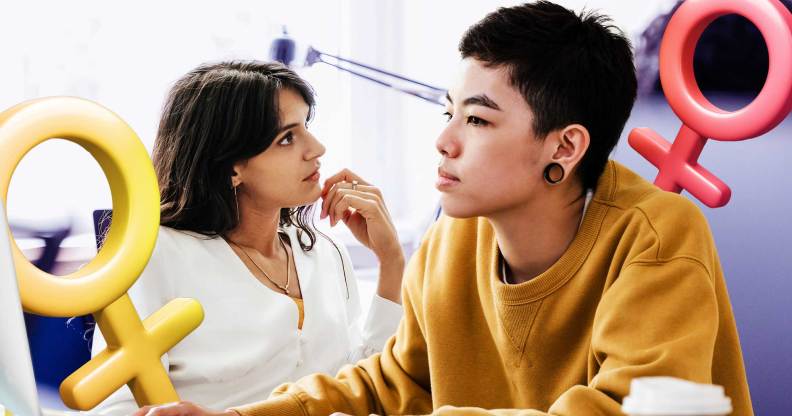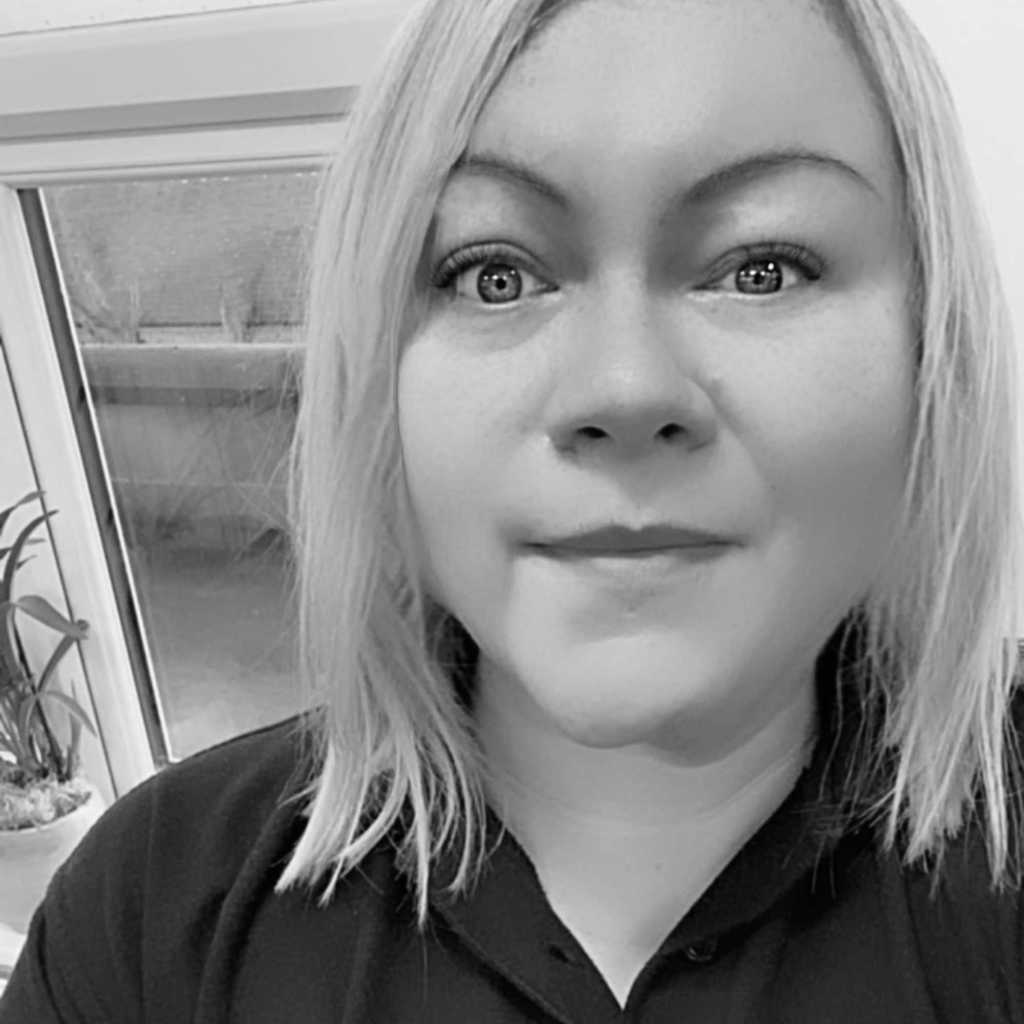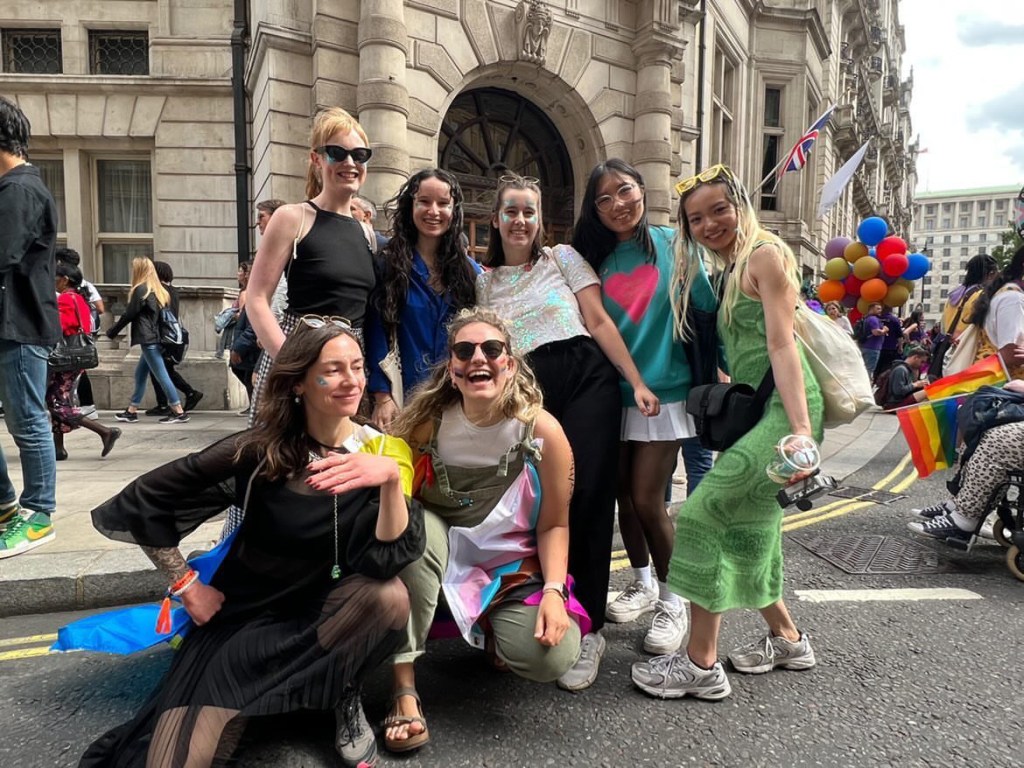Pay gaps, misogyny and homophobia: How queer women and non-binary folk are fighting for equality at work

Queer women face inequality on two fronts. (Getty)
Queer women and non-binary people face a double whammy of misogyny and anti-LGBTQ+ discrimination in the work place.
Cyber security expert Linn Boo wasn’t always out to her colleagues. Once, in a former job, she decided to “be a bit more out and proud”.
In turn, a member of her team spat on her and called her “disgusting”.
“At the time, I was just totally shocked,” Boo tells PinkNews. “Really, I didn’t I didn’t know what to think or how to feel.”
Unfortunately, discrimination like this is far from extinct. Women across the board are paid less, passed over for promotion, and targeted with misogyny and sexual harassment. Queer women face additional issues – Stonewall research from 2018 found that one in five LGBTQ+ staff had received negative comments or conduct from colleagues because of their identity, with the same number saying they were discriminated against while job-hunting.
Boo’s experiences led her to start her own business, the privacy and risk consultancy firm Boo Consulting Limited, where she’s tried to flip the negativity she’s endured on its head “and do everything the opposite way”.

Today Boo is out to all of her staff – half of whom are queer themselves – because she feels it is important to “have that conversation” and show that LGBTQ+ women can hold senior positions and do them well.
“Cyber security is still really male-orientated and women in cyber security are not taken seriously, especially when it is the LGBTQ+ community,” she says.
“I’m part of the community, I am a director and run my own organisation. Hopefully, that might inspire a 15-year-old who is doing their GCSEs to go: ‘Actually, I can do that.’
“We can do anything if we put our minds to it.”
Some of the practical steps Boo has taken to create an inclusive environment in her business include guidance around using names and pronouns in reports and e-learning courses that focus on equality and diversity matters.
Addressing the gender pay gap
The gender pay gap in the UK stands at 8.3 per cent, according to data released in October 2022, while a 2019 YouGov survey found that LGBTQ+ people were paid 16 per cent less than their peers.
One company advocating for equality in pay is Studio Lutalica, a design and consultancy business for “feminists and queers”.
Its founder and creative director, Cecilia Righini, has drawn from their background in design, management and gender studies, as well as their own negative experiences.

“I went through so much discrimination in the workspace that I kind of decided to do something about it, they told PinkNews.
Most of the studio’s staff are women and non-binary people, and Righini wants to see everybody on an equal footing. As a result, everyone in the business – regardless of their role – starts on the same salary.
This is done to remove “unconscious biases” about certain positions beforehand, so finances are “not based on what is the job that you do, but how you do that based on your job description”.
Righini explains: “In the design industry it is really striking how there’s a huge percentage of women coming out of design education, and yet only 11 per cent of women are in leadership positions within the design field. There’s definitely a huge disconnect there.
“With queer people even more so, because there is this fear of fighting back, you’re already scared about your own identity and feel you need to kind of compromise on that. So you will be willing to take a lower pay in order to get a job.”
A “fundamental practice” of how they are shifting the status-quo is by engaging everyone in the business about any major policy changes, enabling all employees to feedback about how the changes could impact them individually.

This year’s theme for International Women’s Day is ‘Embrace Equity’ whereby “equality is the goal, and equity is the means to get there”.
Unlike equality – where everyone is treated the same – equity means recognising that people start from different places, backgrounds and abilities and as a result different adjustments are needed in order to level the playing field.
On 8 March, as the world ‘embraces equity’, it is important to consider how women’s different characteristics play a role in unequal pay as well as how these issues can be addressed, mitigated and stamped out.
How did this story make you feel?

